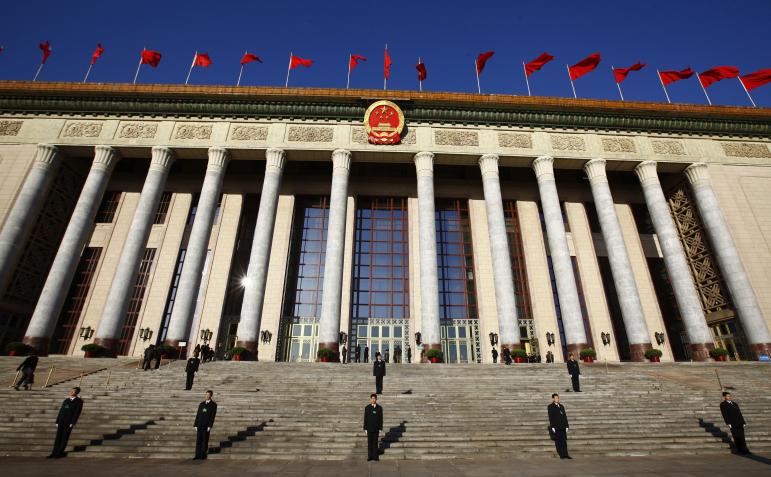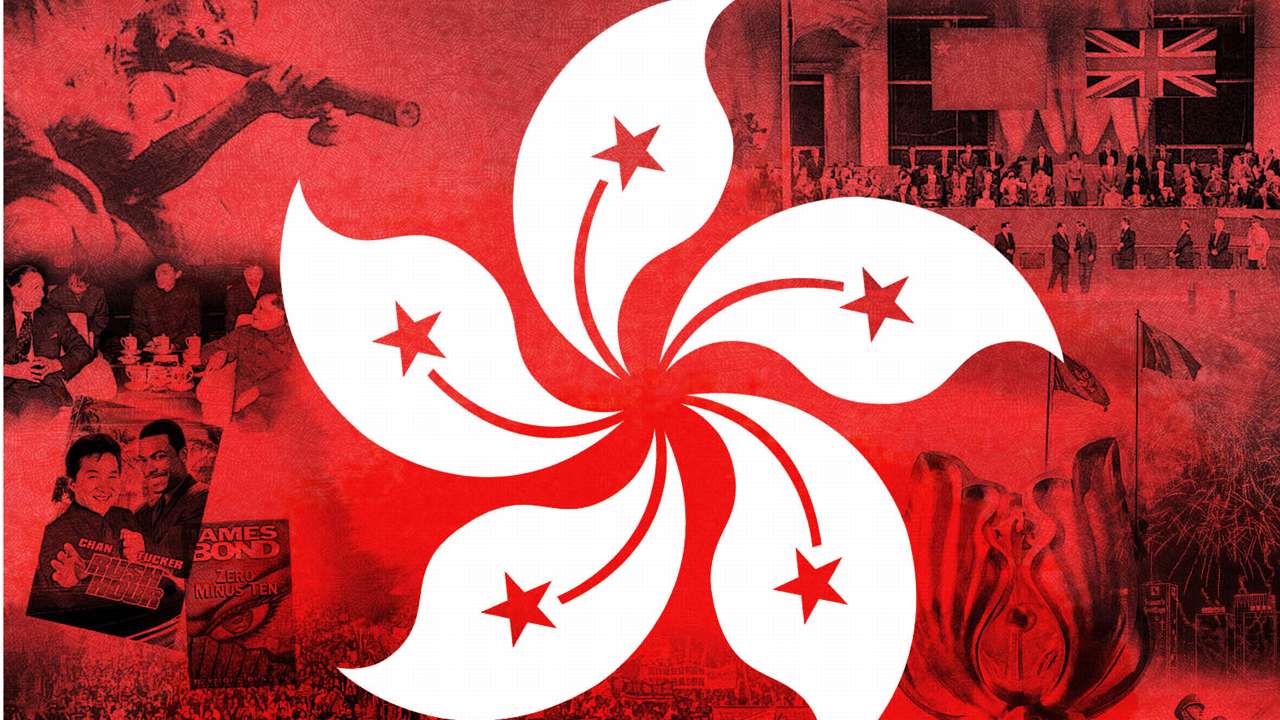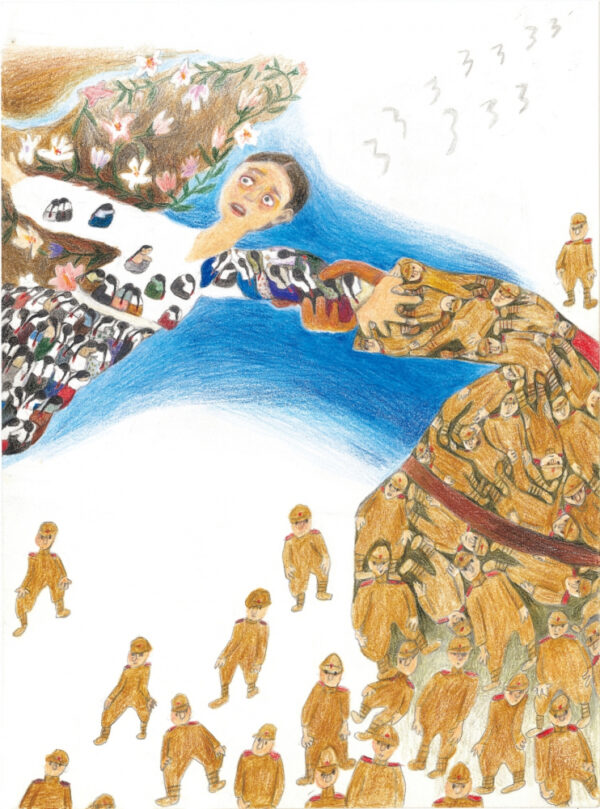For decades, political scientists and international spectators alike have been predicting the demise of the nearly hundred-year old Chinese communist regime. It has been described as “crumbling”, “doomed” and most recently, “close to collapse.” However, having lived through civil war, economic turmoil and several ideological transformations, the Chinese Communist Party is no stranger to a political challenge. It’s ability to maintain a formidable presence against all odds has been the subject of much academic discourse and discussion – including a talk held at the Munk School of Global Affairs on October 7th.
At the event, sponsored by the Asian Institute at the University of Toronto’s Munk School of Global Affairs, speaker Bruce Dickinson spoke about the current state of the CCP and the unique struggle for survival it faces in a changing world and a changed China.
Bruce Dickson is professor of Political Science and International Affairs and Chair of the Political Science Department at the George Washington University. His research and teaching focuses on political dynamics in China, especially the adaptability of the Chinese Communist Party and the regime it governs. Most recently, he authored “The Dictator’s Dilemma: The Chinese Communist Party’s Strategy for Survival,” a book about the Party and its “continued prosperity” since the Tiananmen Square crackdown of 1989.
The talk, titled “The Dictator’s Dilemma: The Chinese Communist Party’s Strategy for Survival” was also part of the East Asia Seminar Series and chaired by Lynette Ong, an Associate Professor at the Department of Political Science at the University of Toronto.
Professor Dickinson began his presentation by critically examining the durability of the authoritarian model in China. According to Dickinson, there are no pressing threats to the Party’s stronghold on power. Although there are “pockets of dissatisfaction and resentment,” he noted, “in the broader scope […] there is a surprising amount of support given foreign perspectives [of the regime]”.
While he acknowledged the undeniable element of government-sponsored repression, Dickinson noted that there has been a steady growth of a civil society in China, which is an important prerequisite for the emergence of any democratic system. The growth in the number of nongovernmental organizations is indicative of a more cooperative trend within the emerging Chinese civil society, he said. Where some might say that all of Chinese civil society is “fed up with the Party, impatient for reform and ready for democracy”, Dickinson thinks otherwise. He admits that while there might be some who feel that way, public opinion vastly differs on whether or not the CCP’s model is in China’s best interests. “There is [a] strong dissatisfaction,” he says, but these views are not “widely shared.”
Dickinson went on to analyze the CCP’s most recent domestic policies. He outlined three key features of the party’s current power strategy: repression, legitimation and co-optation. While repression focuses on directly dealing with threats to the Party’s power, legitimation is a different method of influencing public opinion. With legitimation, Dickinson said, the Party seeks genuine public support, and it does so in a number of ways, such as, promoting patriotism, attempting to revive and integrate Confucian values into its workings, and expanding its economic growth. Co-optation on the other hand, involves the process of recruiting new members into the Party’s fold. The original base membership of the Party, he explained, largely consisted of peasants and soldiers. Now, urban elites make up its bulk, with the main source of new members coming from college and university campuses. The government continually employs active recruitment efforts in particular, to draw in young people who are just beginning their careers.
The ‘dictator’s dilemma’ that comes with such outreach strategies is that each has both short and long-term benefits. There is a risk that the Party takes when it employs these methods, Dickinson explained – it risks going too far and creating more resentment that could manifest itself in civil unrest.
Short term fixes, he warned, could lead to long-term problems. For example, the Chinese Communist Party, as other political systems, faces the additional challenge of the “modernization theory” where civilians develop new interests and expectations of their government that the Party may not be equipped to continually meet. Dissatisfaction comes quicker and harder in the modern world. To demonstrate this, Dickinson produced a number of statistics from nationwide public opinion surveys in China. In urban areas, the data showed, Chinese civilians are most concerned about government censorship and widespread corruption.
Censorship, corruption and crackdowns on dissent have become common fixtures of Chinese society. Dickinson talked of media regulations, such as stipulated off-topic subjects, limited access to controversial information, and the state-sponsored war against VPNs. But the people of China, he said, have “learned to take it in their stride.” However, this repression of civil society he warned, could invite the danger of a covert revolution within the country.
He also mentioned that while repression undeniably exists, there has also been a considerable degree of civil growth within Chinese society – for example, recent data showed that China has over half a million registered non-governmental organizations. While it is true that the majority are not autonomous and rely on local government contracts for funding, Dickinson pointed out that perceptions of ‘autonomy’ in Western societies differ from those in Asia. In Chinese society, he said, autonomy is seen as a sign of weakness. Autonomous organizations that stray off the governmental path are regarded with suspicion from both the state as well as society.
The talk then progressed to discuss other sources of the Chinese Communist Party’s strength. The Party’s main source of legitimation is intrinsically tied to economic growth, Dickinson noted. More specifically, research data showed that support for the government is directly proportional to the level of pocketable income that civilians enjoy. This would explain why the recent slowdown of the Chinese economy has created a legitimacy crisis for the government, he said. CNN reported earlier this year that China’s economy was growing at “its slowest quarterly pace in seven years, touching down at levels last seen during the dark days of the global financial crisis in early 2009.”
Economic fluctuations such as the stock market crash of 2015 expose the fundamental dangers of relying on material interests to generate regime support. Economic growth continues to remain an unpredictable and unreliable source of popularity. Dickinson spoke of how economically, the Chinese people have “only known success [and] an upward climb,”- meaning that the Party can expect a sharp drop in support if the economy is to slow down. If it manages to find a way to maintain rising individual incomes despite economic turmoil, Dickinson believes that it stands a robust chance at retaining popular support. After all, he observed, the regime is more resilient and adaptable than most scholars may think.
As for the party’s future prospects, Dickinson ended the talk on an optimistic note, commenting that “efforts to promote regime change might be counterproductive because most people in China think the country is already democratic.” He elaborates that since the definition of democracy in Chinese society differs vastly from how it is perceived in the West, the Party still enjoys “firm breathing room” in the country’s domestic political sphere. Professor Dickinson’s talk was an excellent introduction to the internal workings of the CCP and by presenting national data surveys to the audience, he managed to provide a unique insight into the thought processes of Chinese society and the prolonged existence of its current government.
Emaan Thaver is a fourth year student studying International Relations and Economics at Trinity College in the University of Toronto. Her academic areas of interest include the historical periods of post-war Europe and the logistics of peace as well as contemporary global economic development.








